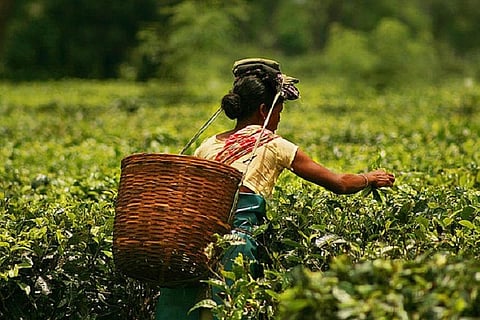Small tea growers in Assam to get land rights for first time
By Zarir Hussain
Thousands of small tea growers in India's Assam state will be given land rights for the first time in an attempt to boost production and generate employment, the state government said.
"We are committed to providing land rights to an estimated 78,286 small tea growers in the first phase and eventually we hope to grant land rights to all the growers in the next five years," Assam Labour Minister Pallab Lochan Das told the Thomson Reuters Foundation.
He urged small tea growers to keep a check on the quality of their tea, known for its deep-amber colour and full body, as Indian tea has been going through a tough phase in the international market.
A government survey showed less than 10 percent of 68,500 small growers in Assam, the world's largest tea growing area, had valid documents to prove ownership or lease agreements of the land they use.
Lack of documentation makes it hard for small growers to obtain loans and benefits from incentive schemes.
The government said the first phase of granting land rights would begin in two months.
"We are extremely happy that the Assam government has decided to grant land rights in phases to our member growers," said Rohit Borgohain, general secretary of the All Assam Small Tea Growers Association.
"This would help us produce quality tea and also generate employment as growers will now be able to diversify their plantations in a big way," said Borgohain.
Assam accounted for about 50 percent of tea production in India, the world's second-biggest producer, in 2016.
The small growers contributed about 40 percent of Assam's total tea production of 616 million kg of tea last year.
Assam's tea industry has been in crisis for years with accusations of slave labour and trade unions demanding better wages while tea estate owners refused.
Tea estates have faced closures due to various reasons, including labour disputes.
(Editing by Astrid Zweynert @azweynert; This story was first published on September 13, 2017 in Thomson Reuters Foundation, the charitable arm of Thomson Reuters, that covers humanitarian news, women's rights, trafficking, property rights, climate change and resilience. Visit http://news.trust.org)

